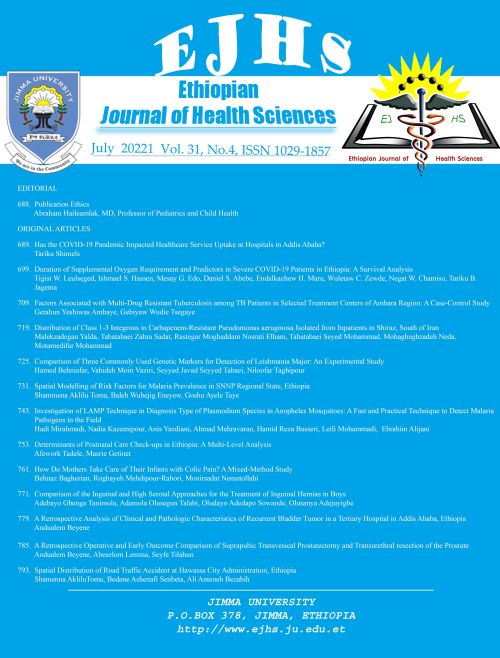Main Article Content
Factors Associated with Human Brucellosis among patients Attending in Ayu Primary Hospital, North Showa, Ethiopia: ACase Control Study
Abstract
BACKGROUND፡ Brucellosis is a disease of domestic and wild animals commonly caused by Brucella species and can be transmitted to humans (zoonosis). Susceptibility to Brucellosis in Humans depends on immune status, routes of infection, size of the inoculums, and to some extent, the species of Brucella. Globally more than 500,000 new cases are reported each year. In sub-Saharan Africa, Brucellosis prevalence is unclear and poorly understood with varying reports from country to country, geographical regions as well as animal factors.
METHODS: Facility-based unmatched case-control study was conducted on 167 patients with human brucellosis and 332 controls from February 27/2019 to May 20/2019 in AYU primary hospital, North Showa Zone, Ethiopia. descriptive statistics such as frequency and percentages were used to describe the profile of case and control and analytical statistics such as bivariate and multivariate logistic regression analysis was performed to identify the determinants of human brucellosis.
RESULT: A total of 499 participants were included with a response rate of 99.60%. The mean age of participants was 45.46 years with a standard deviation (SD) of ±12.96 years. Human brucellosis had a statistically significant association with raw milk consumptions (AOR 5.75[95%CI 1.97-16.76]), slaughtering of animals at home(AOR 14.81[95%CI 3.63-60.38]), having contact with animal manure(AOR 2.87 [CI 1.08-7.62]), having contact with aborted cattle's fetus (AOR 3.01[95%CI 1.34-9.13]) and knowledge about brucellosis(AOR 0.29 [95%CI 0.08-0.83].
CONCLUSION: Generally in this study knowledge about Human Brucellosis, contact with animal manures, practicing animal slaughtering at home, having contact with animal ruminants, and consuming raw milk were identified as determinants for human brucellosis infection.






